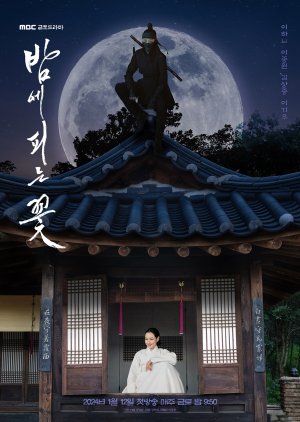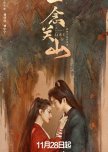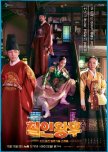
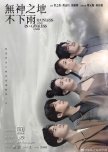
All the gods will be leaving before the last rain of doomsday. However, an ordinary human girl unexpectedly puts a dent in their plans to retreat thus causing the world to move towards the unknown. Based on the animistic mythology of the Amis tribe, the gods are no longer willing to bless the land that is plagued with environmental issues. One by one, the gods depart the world they once loved. A human girl discovers that the opportunity to reverse her destiny lies within herself and her guardian. Before the final day of judgment, a love story between human and god unfolds.


Different genre, but for me these two have some similarities when it comes to the vibe they give.
As I wrote in my review for My Sweet Mobster, it is kind of like the scriptwriters didn't take themselves too seriously, which resulted in some lighthearted humor.
Both of these shows also showcases underlying issues; for MSM it is ex-convicts' struggles to get back into society, and for KF it is widows' status during Joseon times.
As I wrote in my review for My Sweet Mobster, it is kind of like the scriptwriters didn't take themselves too seriously, which resulted in some lighthearted humor.
Both of these shows also showcases underlying issues; for MSM it is ex-convicts' struggles to get back into society, and for KF it is widows' status during Joseon times.


In the episode 9 of the Fiery Priest season 2. Father Michael and Prosecutor Angela disguise, and the one who cosplay by Prosecutor Angela is her character in The Knight Flower. This story was focus on Lee Hanee but this character was shown in the episode 9 of the season 2 and it's kinda cool to see her again wearing her clothes as Yeohwah.

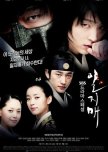

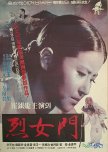
Also know as The Memorial Gate for Virtuous Women (???) is a 1962 South Korean film directed by Shin Sang-ok that gives a close up look at the reality of being a widow in Joseon.
The film tells the story of the widow of a nobleman who bears a son after having an affair with her servant. The servant and the baby are driven from the home by the woman's irate in-laws.
The film tells the story of the widow of a nobleman who bears a son after having an affair with her servant. The servant and the baby are driven from the home by the woman's irate in-laws.


In 18th-century Korea, Prince Yi San is a perfectionist haunted by his father's murder. He's set to inherit the throne once his cruel grandfather, the current king, passes away. Despite the emotional scars left by his father's death, Yi San aspires to be a benevolent ruler who reforms the kingdom's laws. At court, he encounters Sung Deok Im, a spirited and intelligent young woman. While Yi San falls in love and proposes she become his concubine, Sung Deok Im grapples with the restrictions and responsibilities that come with royal life. However, as their love deepens, she begins to see the potential to bring positive change to the troubled realm through their union.
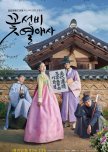
• Both are Historical Fictions
• Both have a confident and kind female leads
• Both have a protective and skilled swordsman male leads
• Both male leads have a hidden identities
• Both female leads live a life atypical from the Joseon noblewoman norm because of a family disaster.
• Both are slow, sweet romances
• Both work to help secure the royal family with investigation(s)
• Both have a happy ending
• Both have a confident and kind female leads
• Both have a protective and skilled swordsman male leads
• Both male leads have a hidden identities
• Both female leads live a life atypical from the Joseon noblewoman norm because of a family disaster.
• Both are slow, sweet romances
• Both work to help secure the royal family with investigation(s)
• Both have a happy ending

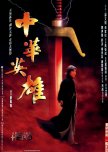
Episodic saga from the first half of the 20th century follows Hero Hua from an ill-omened June day in his youth to a showdown 17 years later with a disaffected member of his martial-arts school, a Japanese named Invincible. Tensions between Chinese and Japanese, plus U.S. racism, mark the tale. Hero marries Jade, leaves her in China when he goes to America as an indentured servant, rebels against cruel labor conditions, and is joined by her in New York City where she has twins. Jump ahead 16 years: their son Sword comes to New York looking for his father. There, Sword hears many stories of his father, which we see in flashbacks, and the stage is set for the battle with Invincible.

